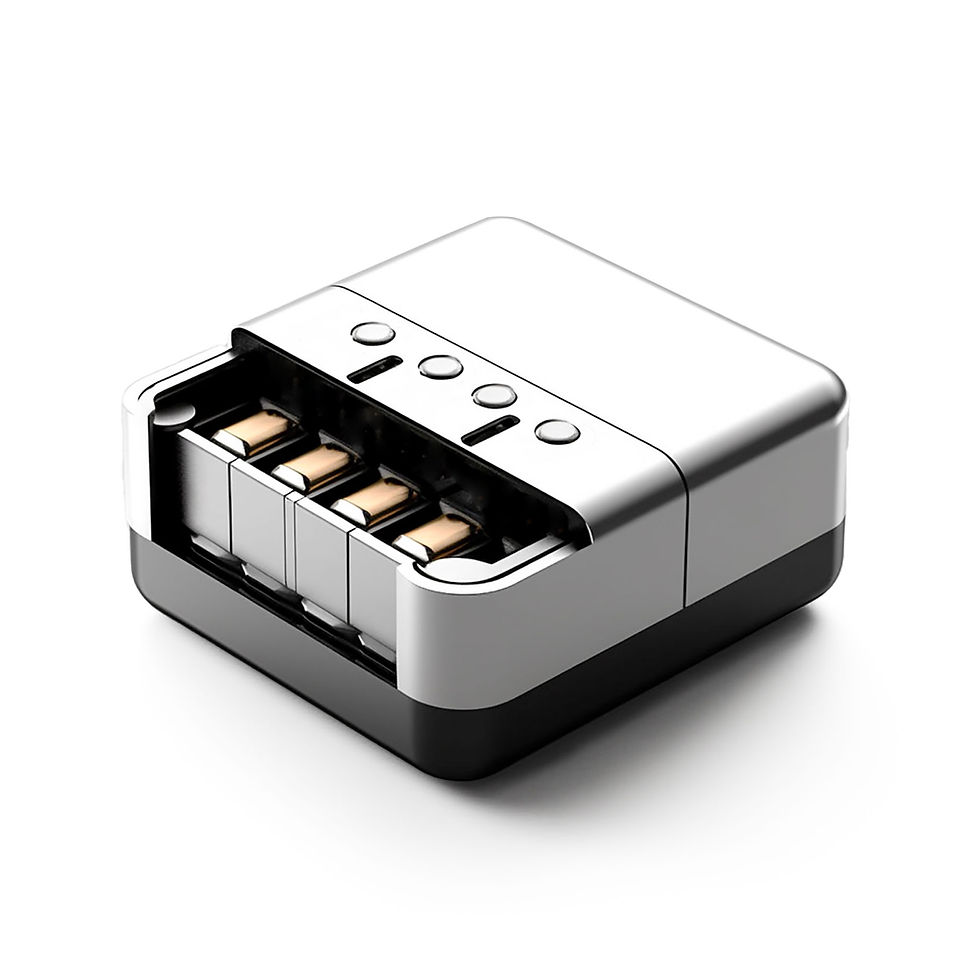Breaking the Battery Paradox: Green Tech Alternatives for a Sustainable Future
- claudiaavlis45
- Mar 3
- 3 min read
In 1991, Sony revolutionized energy storage by introducing the first rechargeable lithium-ion battery. This groundbreaking chemistry became the cornerstone of modern technology, powering everything from electric vehicles (EVs) to smartphones. Today, as the demand for these batteries skyrockets, we face a critical dilemma: lithium, the key component, is rare, primarily sourced from unstable markets outside Europe, and its extraction inflicts substantial environmental damage. We are caught in a paradox – we need more lithium to fuel the green transition, yet its current use is unsustainable, both environmentally and economically.
This paradox necessitates innovative solutions. While recycling batteries is not a novel concept, advancements in green technology offer promising alternatives to mitigate the environmental and economic challenges associated with lithium extraction. Munich-based startup Tozero, for example, is pioneering a more efficient and environmentally friendly battery recycling process.
The Lithium Dilemma: Environmental and Economic Impacts
The extraction of lithium is fraught with environmental consequences. Traditional methods often involve open-pit mining and evaporation ponds, which consume vast amounts of water and contaminate local ecosystems. These practices can lead to soil degradation, water pollution, and habitat destruction. Moreover, the concentration of lithium reserves in politically unstable regions creates economic vulnerabilities and supply chain disruptions.
Green Tech Alternatives: Recycling and Beyond
To address these challenges, green tech innovators are exploring several avenues:
1. Advanced Battery Recycling:
Tozero, as mentioned, is at the forefront of this effort. Their technology aims to recover valuable materials from spent lithium-ion batteries more efficiently and sustainably than traditional methods. Unlike conventional recycling processes that rely on harmful acids, Tozero employs a proprietary, eco-friendly approach. This innovation not only reduces environmental impact but also enhances the economic viability of recycling, creating a closed-loop system for battery materials.
2. Alternative Battery Chemistries:
Researchers are actively exploring alternative battery chemistries that reduce or eliminate the need for lithium. Sodium-ion batteries, for instance, utilize abundant and widely available sodium, offering a more sustainable and cost-effective alternative. Other promising technologies include solid-state batteries, which offer improved safety and energy density, and organic batteries made from sustainable materials.
3. Enhanced Extraction Techniques:
Innovations in extraction technology aim to minimize the environmental footprint of lithium mining. Direct lithium extraction (DLE) methods, for example, can selectively extract lithium from brine with a significantly lower water consumption and reduced environmental impact compared to traditional evaporation ponds.
4. Urban Mining:
The concept of “urban mining” involves recovering valuable materials from electronic waste, including spent batteries. As the volume of e-waste continues to grow, urban mining offers a sustainable source of lithium and other critical minerals, reducing the reliance on primary extraction.
5. Sustainable Battery Design:
Designing batteries with recyclability and sustainability in mind is crucial. This involves using materials that are easier to recover and recycle, as well as developing modular battery designs that facilitate disassembly and component replacement.
The Path Forward: Collaboration and Innovation
Overcoming the battery paradox requires a collaborative effort from industry, academia, and policymakers. Investing in research and development of green tech alternatives, establishing robust recycling infrastructure, and implementing sustainable extraction practices are essential steps. Furthermore, promoting a circular economy for battery materials can reduce waste and minimize the environmental impact of battery production.

Conclusion: A Sustainable Energy Future
The transition to a sustainable energy future hinges on our ability to develop and deploy green tech alternatives for battery production and recycling. While lithium-ion batteries have played a crucial role in the green revolution, we must move beyond our reliance on unsustainable extraction practices. By embracing innovation and collaboration, we can break the battery paradox and create a more environmentally and economically sustainable energy storage ecosystem.
#GreenTech #BatteryRecycling #LithiumIonBatteries #EVs #Sustainability #RenewableEnergy #CircularEconomy #Innovation #TechForGood #CleanTech #SustainableMining #SodiumIonBatteries #SolidStateBatteries #UrbanMining #EnvironmentalSustainability #EnergyStorage #Tozero #BatteryTechnology #FutureOfEnergy #AThousandDoors








Comments